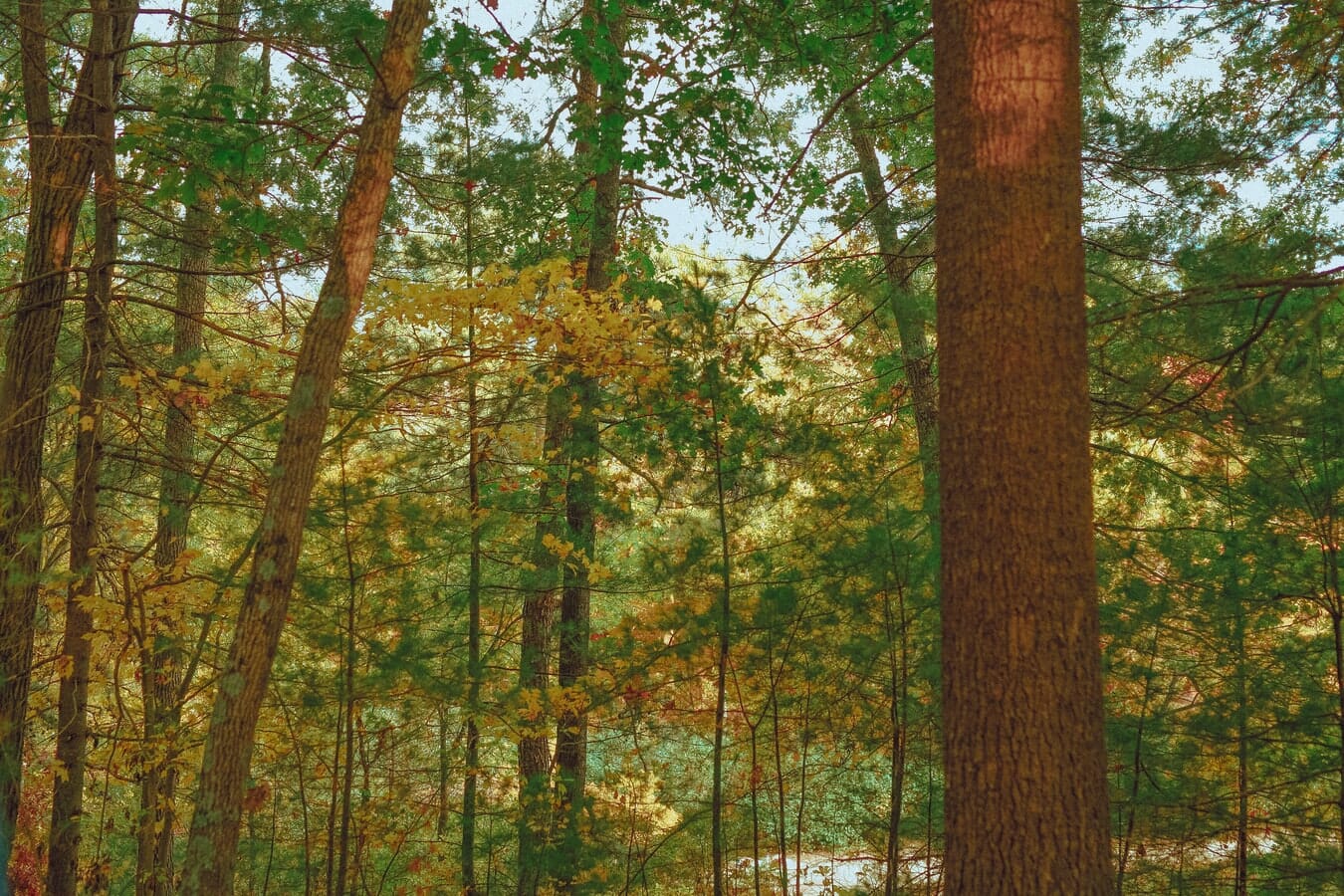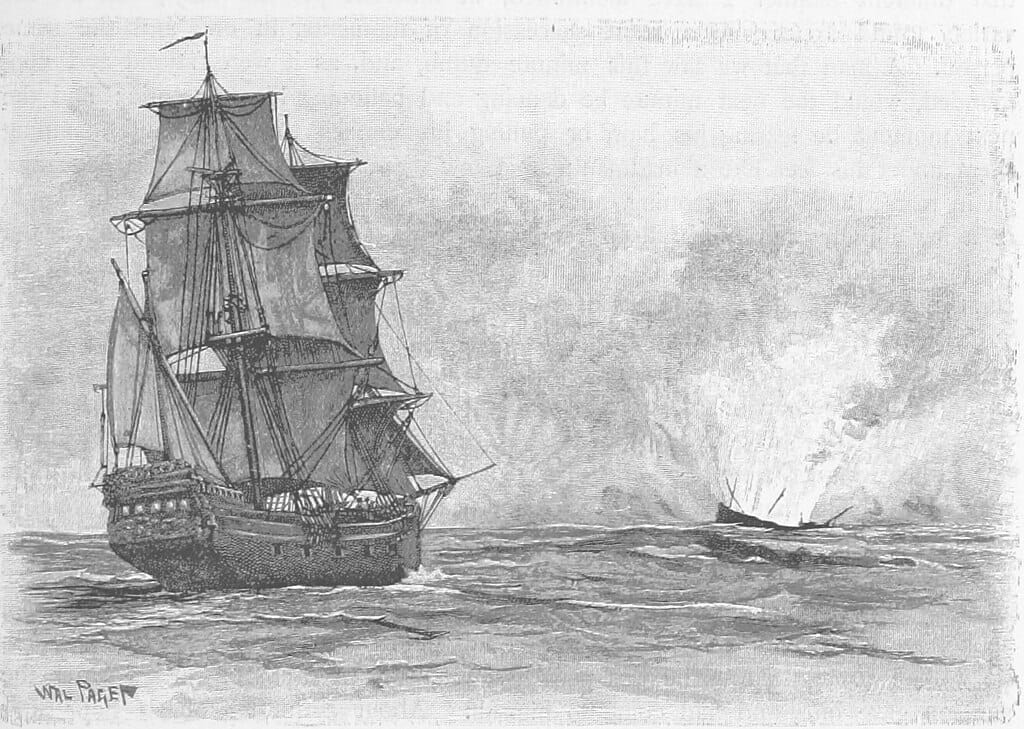
“A success unexpected in common hours” | Walden; or, Life in the Woods
Author
Year
Format
In summer 1845, the American philosopher Henry David Thoreau was in search of himself. He had tried teaching and gave it up, and he was thus lacking a clear sense of vocation and purpose. But on Independence Day he set out from his family home in Concord, Massachusetts, to take up residence in the woods, an experience that would change his life forever.
On the shores of Walden Pond, Thoreau built himself a tiny cabin with secondhand lumber, where he planned to lead a life as independent as it could be. The day he moved in, he was not yet 28.
I went to the woods because I wished to live deliberately, to front only the essential facts of life, and see if I could not learn what it had to teach, and not, when I came to die, discover that I had not lived.
Thoreau lived by the Pond for two years, two months, and two days. The results of his experiment are reported in his world-renowned book, Walden; or, Life in the Woods, a minute account of his observations of Nature and Life. Part memoir, part a spiritual quest, Walden is considered a classic in American Literature, and one of the foundational stones of environmentalism.

Eleanor Philips, via Unsplash
A philosopher of Nature
When he went into the woods, Thoreau had almost no money. Yet he had some survival skills, and, most importantly, strong beliefs. He had studied at Harvard College but found himself deeply disappointed by the quality of the intellectual life there. Harvard had taught him all the branches of learning, but, as Thoreau said, “none of the roots”. Only back in Concord did he eventually find someone he could learn something from: Ralph Waldo Emerson.
Emerson was one of the founding members of Transcendentalism, a philosophical movement that saw Nature as an outward sign of the Spirit. In formulating their vision, Transcendentalists took inspiration from a variety of sources, ranging from Oriental Philosophies to German Romanticism and Idealism. They held that people are fundamentally good, but society and institutions corrupt their virtue. Thus, to restore their original purity, humans should be as independent as possible. As Emerson wrote in his famous essay Nature, where he first formulated Transcendentalist philosophy, “in the woods, we return to reason and faith.”
Introduced to Emerson by a mutual friend, Thoreau enthusiastically espoused his views and became himself a philosopher of Nature. He hoped to discover deeper truths than the ones he learned at Harvard.
A quest for freedom
While inspired by these teachings, Thoreau’s philosophy eventually took a different path from that of Transcendentalists. The two years he spent on the shores of Walden Pond are the most theatrical expression of this shift. Transcendentalists hailed Nature from their cozy parlors, but this was not enough for Thoreau. He wanted to walk through it. He wanted his actions to reflect his thoughts.
It should not come as a surprise, then, that young Thoreau was also profoundly concerned with politics. Walden; or Life in the Woods itself is full of social and economic analyses. During his experience on Walden Pond, he reinforced his theory and practice of civil disobedience.
One afternoon, near the end of the first summer, when I went to the village to get a shoe from the cobbler’s, I was seized and put into jail, because, as I have elsewhere related, I did not pay a tax to, or recognize the authority of, the state which buys and sells men, women, and children, like cattle at the door of its senate-house.
By setting an example, Walden offers an ethical view that achieves social commitment through self-rule. It aims at demonstrating that individuals should not turn to greater forces for a guide to life, but to Nature and the Self.

Andrew Douglas, via Wikimedia Commons
Leaving the Pond
Thoreau left Walden Pond on 6th September 1846. As he walked away from his lumber cabin one last time, he felt satisfied. He had “several more lives to live, and could not spare any more time for that one.” He had found what he was looking for. “However mean your life is, meet it and live it; do not shun it and call it hard names. It is not so bad as you are”, he concluded in the final chapter.
Today, Walden; or Life in the Woods stands as one of the most celebrated works in American literature. Not only Naturalists John Burroughs and John Muir read it, but also poets William Butler Yeats and Robert Frost, and even Mahatma Gandhi. It was also influential on the masses and inspired a variety of movements, ranging from the beat generation to environmentalism. That’s because, at its core, Walden is a quest for freedom and emancipation, urging us to find our own beliefs and to try to live them out.
I learned this, at least, by my experiment: that if one advances confidently in the direction of his dreams, and endeavors to live the life which he has imagined, he will meet with a success unexpected in common hours.
Maybe this is the secret of Walden’s appeal. Beyond its meticulous descriptions of nature, its philosophical reflections, its ruthless attacks on society, it lies the story of a young man who was lost and eventually found himself.
Tag
Buy a ☕ for Hypercritic








